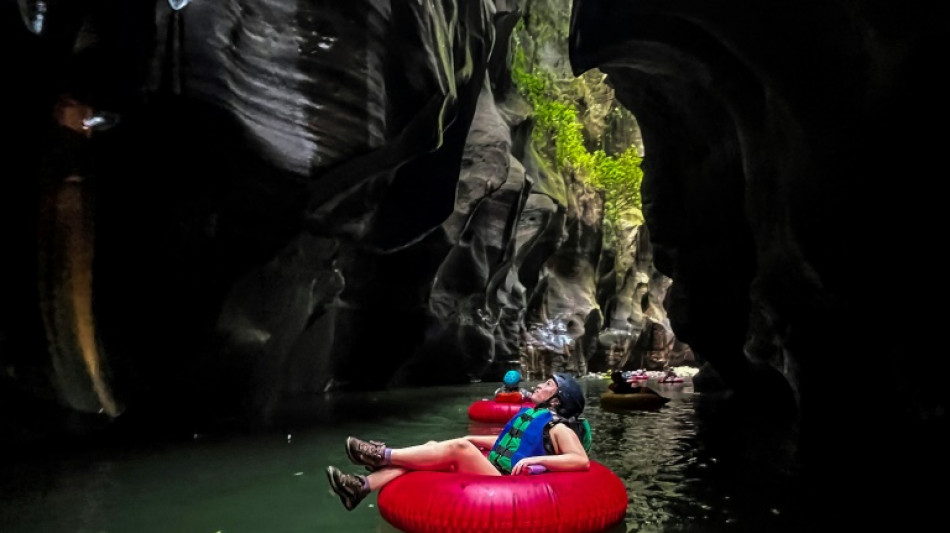
-
 GM profits top estimates, but automaker reviewing outlook due to tariffs
GM profits top estimates, but automaker reviewing outlook due to tariffs
-
Stock markets edge up as Trump softens tariff pain for auto firms

-
 Pricier trainers? Adidas warns on US tariff impact
Pricier trainers? Adidas warns on US tariff impact
-
Spain, Portugal rule out cyberattack for massive blackout
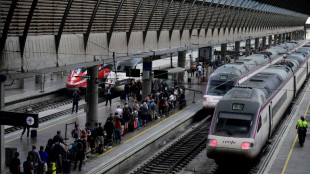
-
 Suryavanshi, 14, dubbed India's next superstar after shattering records
Suryavanshi, 14, dubbed India's next superstar after shattering records
-
Power back in Spain, Portugal after massive blackout
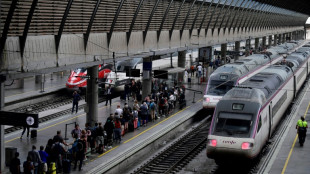
-
 Pakistan says it shot down Indian drone along Kashmir border
Pakistan says it shot down Indian drone along Kashmir border
-
Cardinals run the media gauntlet ahead of conclave

-
 BP profit drops 70% amid pivot back to oil and gas
BP profit drops 70% amid pivot back to oil and gas
-
Iran says fire contained after deadly blast at key port
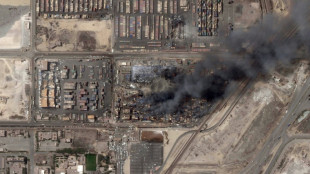
-
 Irish rappers Kneecap deny support for Hamas, Hezbollah
Irish rappers Kneecap deny support for Hamas, Hezbollah
-
Blackout plunges Spain into chaotic night of darkness
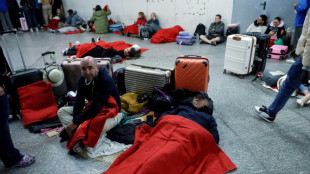
-
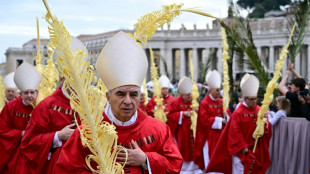 Convicted cardinal confirms he will sit out conclave
Convicted cardinal confirms he will sit out conclave
-
Kashmiris fortify bunkers anticipating India-Pakistan crossfire
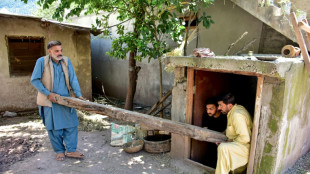
-
 Adidas warns US tariffs to push up prices
Adidas warns US tariffs to push up prices
-
Markets boosted as Trump softens tariff pain for auto firms

-
 Suryavanshi, 14, dubbed 'next superstar' after batting records tumble
Suryavanshi, 14, dubbed 'next superstar' after batting records tumble
-
Australian doubles player Purcell accepts 18-month doping ban

-
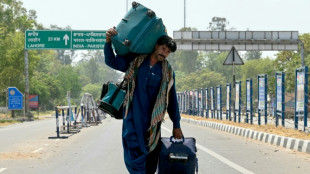 Kashmir attack unites political foes in India, Pakistan
Kashmir attack unites political foes in India, Pakistan
-
Croatia hotel toasts dizzying century of stars, sovereigns and champagne
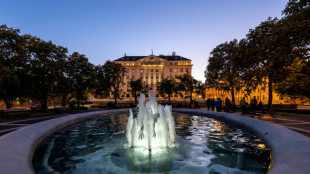
-
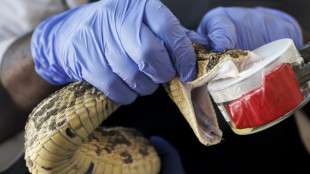 Kenya's desperate need for more snake antivenom
Kenya's desperate need for more snake antivenom
-
Les Kiss in frame with Wallabies set to name new coach

-
 Cavaliers scorch Heat, Warriors down Rockets in thriller
Cavaliers scorch Heat, Warriors down Rockets in thriller
-
Opposition wins Trinidad and Tobago election, returning Persad-Bissessar as PM

-
 Study sheds light on origin of Australia's odd echidna
Study sheds light on origin of Australia's odd echidna
-
France tries Syrian Islamist rebel ex-spokesman on war crime charges
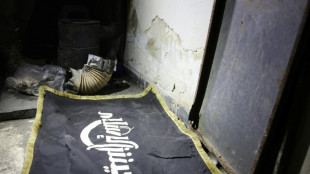
-
 Trump boasts of 'fun' 100 days, but Americans disenchanted
Trump boasts of 'fun' 100 days, but Americans disenchanted
-
Elitist no more, caviar is turning casual

-
 Amnesty accuses Israel of 'live-streamed genocide' against Gaza Palestinians
Amnesty accuses Israel of 'live-streamed genocide' against Gaza Palestinians
-
Inter slump puts season at risk ahead of daunting Barca trip

-
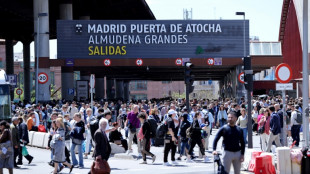 Power returns to most of Spain, Portugal after massive blackout
Power returns to most of Spain, Portugal after massive blackout
-
'I have hope': Vietnam Babylift survivor's search for birth mother

-
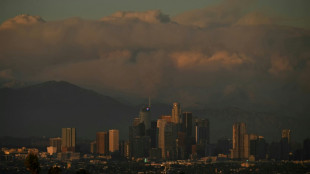 US climate assessment thrown into doubt as Trump dismisses authors
US climate assessment thrown into doubt as Trump dismisses authors
-
Venezuelan president slams US over little girl's 'abduction'
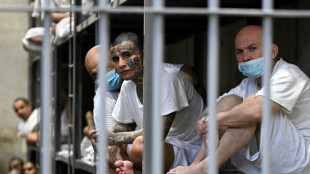
-
 Hard-right upstarts eye big gains in local UK polls
Hard-right upstarts eye big gains in local UK polls
-
Skulls, smoke and spirits: Thai ceremony for the unclaimed dead
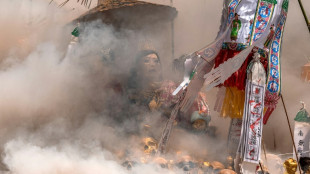
-
 Canada's Carney: political newcomer who says he's best in a crisis
Canada's Carney: political newcomer who says he's best in a crisis
-
Cavaliers scorch Heat to seal series sweep

-
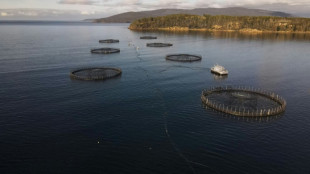 Dead salmon create election stink on Australian island
Dead salmon create election stink on Australian island
-
Mic check: Singapore's podcast boom amplifies opposition voices

-
 Markets rise as traders gear up for earnings, key jobs data
Markets rise as traders gear up for earnings, key jobs data
-
Congress passes 'revenge porn' ban, sending it to Trump
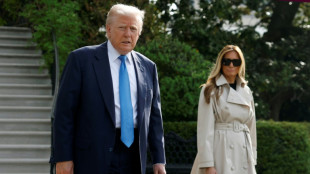
-
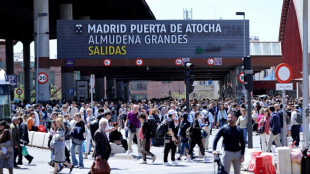 Spain and Portugal work to restore power after massive blackout
Spain and Portugal work to restore power after massive blackout
-
Less-thirsty rice offers hope in drought-stricken Chile

-
 Yamal stardust could give Barca edge on Inter Milan
Yamal stardust could give Barca edge on Inter Milan
-
NioCorp Engages Engineering Firms to Update Elk Creek Project Feasibility Study

-
 Global Sports Brand U.S. Polo Assn. Delivers Record $2.5 Billion in Retail Sales for 2024, Targets $3 Billion and 1,500 U.S. Polo Assn. Stores
Global Sports Brand U.S. Polo Assn. Delivers Record $2.5 Billion in Retail Sales for 2024, Targets $3 Billion and 1,500 U.S. Polo Assn. Stores
-
Meridian's Drilling Extends High-Grade Gold-Copper Ore Zone at Cabacal Via Gold Veins Grading up to 276g/t Au

-
 Measles is Likely to Become Endemic - NanoViricides Is Testing a Drug to Combat It
Measles is Likely to Become Endemic - NanoViricides Is Testing a Drug to Combat It
-
Monogram Technologies Granted Regulatory Approval to Import mBôs TKA System for Clinical Investigation in India


Hidden Colombia canyon transformed from rebel route to tourist draw
For years, the crystal clear river flowing between giant boulders served as a strategic guerilla route in Colombia's bloody armed conflict.
But today tourists bob happily down it in multi-colored inflatables, accompanied by birdsong and the rush of water.
The Guape Canyon, a 35-meter (115-foot) deep natural wonder in the town of La Uribe in the southern Meta department, was hidden for decades by the fighting between Bogota and the Revolutionary Armed Forces of Colombia (FARC).
Its passageways -- illuminated by scant bars of sunlight that cross immense caves -- were rediscovered thanks to the historic peace agreement signed by the two sides in 2016.
Now, instead of armed rebels, tourists float down its sometimes turbulent and sometimes serene waters. Some close their eyes and let themselves be carried away by the sounds and sensations of the jungle.
"Before, people used to pass through here armed with rifles.... To see this, the way it has changed, is impressive," says one of the guides, all young victims of violence, before embarking on a tour accompanied by an AFP photojournalist.
La Uribe rose to fame in the 1980s and 1990s as an enclave of the most powerful guerrillas on the continent.
Anchored in the Eastern Plains, between the country's Andean center and the Amazon, the town was the scene of one of the failed peace negotiations between the state and the FARC.
It was also the epicenter of a bloody rebel onslaught that destroyed police and army stations.
In 2017, after the peace deal was signed, the story took a turn. Rebels still in camouflaged uniforms and carrying rifles emerged from the thick jungle that hides the canyon to await their disarmament and transformation into a political party.
"In spite of all the vicissitudes and problems that have been occurring for decades... today nature itself is in charge of giving rebirth to the communities," declares an official bulletin about a place that until recently was largely unknown to Colombians.
The peace agreement disarmed the bulk of the FARC and pacified certain regions.
But some armed and dissident groups continue to fight for control of Colombia's illicit drug trafficking business and illegal mining in an internal conflict that saw some nine million people killed, injured, kidnapped or displaced over more than 50 years of conflict.
A.Jones--AMWN